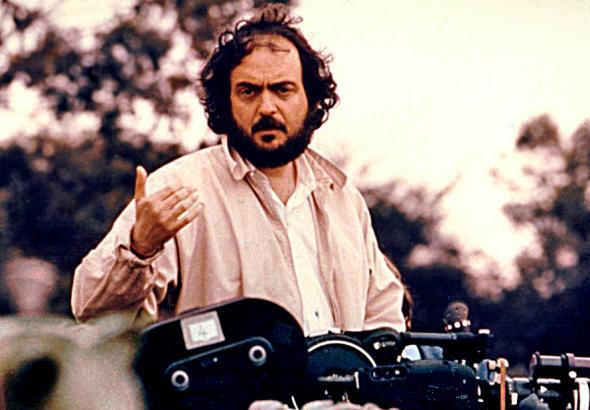Yesterday, when I saw the latest “Black List” of unproduced screenplays beloved by Hollywood execs, one title leapt off my computer screen: 1969: A Space Odyssey, or How Kubrick Learned to Stop Worrying and Land on the Moon. As anyone who has seen Room 237 knows, there is a conspiracy theory of long standing that Stanley Kubrick helped fake the moon landing. Here, to judge from its title—which, of course, pays homage to two Kubrick classics—was a screenplay that took that crazy notion and ran with it. Sounds fun!
So I emailed the screenwriter, Stephany Folsom.
“The theory that Stanley Kubrick faked the moon landing started circulating right after we landed on the moon in 1969,” Folsom told me, adding that she has “always been fascinated by conspiracy theories”—but also noting that “fascination” is very different from “belief.” “I love the idea that a group of people could be so organized to orchestrate what essentially is a giant con job, but I just don’t buy that people are that competent to execute something on so large a scale without someone dropping the ball or spilling the secret.”
She began researching this particular theory after seeing the Stanley Kubrick exhibit at the Los Angeles County Museum of Art. She had “just participated in a NASA Social event, where members of the public can meet with astronauts and NASA scientists to learn about the latest space missions,” and these two “seemingly unrelated events” got her going. She wrote the script as “an homage to Stanley Kubrick’s work and space exploration.”
The title led to me to assume that the movie would be a comedy, perhaps a Dr. Strangelove-esque satire. But Folsom says it’s “mostly a drama,” albeit one with “some comedic moments.” The main character is “a female public affairs assistant in the Nixon administration” named Barbara, who is a composite of several women that were hired “as part of Nixon’s Task Force on Women’s Rights. Kubrick is the driving force of the script,” Folsom adds, “but the movie is really Barbara’s journey.”
I asked Folsom if the Kubrick estate might pose an obstacle to getting such a movie made. She replied simply that the script is “a cinematic love letter to his work.” And while she couldn’t tell me too much about where the screenplay stood in the development process, she did say that “things are happening.”
I hope so. This is a movie I would like to see.
